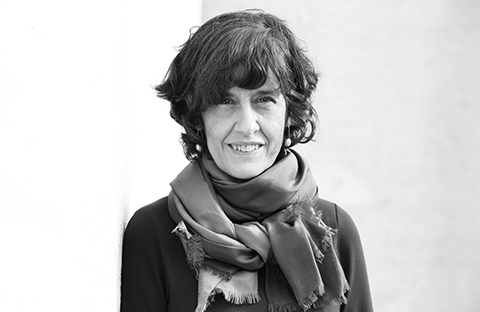The Routes of Advancement in Person-Centered Care project is a joint initiative of Matia Fundazioa and ACP Gerontología that arises from the journey made by Matia Fundazioa in the progress towards a person-centered care (ACP).
Pura Diaz-Veiga

Pura Diaz Veiga earned a licentiate in Psychology from the Autonomous University of Madrid in 1979. In 1985, she earned the Degree and in 2004, the Diploma of Advanced Studies.
She has participated in several Research projects related to gerontology and disability. She has taught Master courses and Courses related to Social Gerontology and Disability in various Spanish and Latin American institutions.
She has worked in Research Teams at the Autonomous University of Madrid and as a Psychologist in Primary Care Team of the Territorial Delegation of ONCE in Valladolid. She is the author of over 30 publications including the "When older people need help" Guide, published by IMSERSO (1997) and the "Manual for psychological intervention in adjustment to visual impairment," published by ONCE (2003). She is also a Reviewer for the Journal of the Spanish Society of Geriatrics and Gerontology. Since 2007, she been part of the Technical Committee of the Company and since June 2010 she has been part of its Board of Directors.
Projects
The main objective of this project is to guide training strategies and develop training curricula for care professionals in Costa Rica, Colombia and Uruguay, from a person-centred care approach.
Intergenerational community development project funded by the Provincial Council of Gipuzkoa and implemented by Matia Institute and Adinkide, which seeks to work on the inclusion of people at risk of social exclusion involving different community agents in both the search for solutions and their
The EXTENSOR project addresses a relevant problem, musculoskeletal disorders are the first cause of sick leave and represent 45.8% of the cost of occupational diseases in the Basque Country.
From a functional point of view, frailty is a state of high vulnerability in which the ability of frail elderly people to adapt to adverse events such as a fall or the flu is reduced, leading to functional deterioration and dependence.
This study, like its predecessor, "Comer a gusto, vivir con calidad", aims to increase the well-being, nutrition and hydration o
The practice "Eating well, living with quality" is part of a process of institutional change of the care model and is developed from a participatory action-research approach. It is part of a broader institutional project in which actions at the organizational, architectural, training, etc.
FRAILTEK: New strategies for the development of tools and products aimed at the identification and assessment of frailty syndrome.
Caring for people is an issue that, despite being of great importance, is currently not given as much visibility as we would like.
The Etxean Ondo project is an initiative by the Matia Fundazioa-Matia Institute and the Basque Government consisting of the development of a model of care based on the preferences of people and covering home, environment and residential care.
Throughout this project, aspects were collected that, above all, are considered novel and sometimes complex and that, therefore must be analysed from different perspectives and disciplinary and institutional cultures, and should be tested on an experimental basis, to search for the best ways to a
Investigación colaborativa
Propuesta de análisis tentativo de la influencia de la edad en relación con determinadas suposiciones o consecuencias asociadas con la crisis del coronavirus.
Publications
Participation in forums
Blog posts
In recent months, we have witnessed a wide range of pronouncements, documents and conferences on the future of long-term care in our country.
A year ago, we were astonished to see how an unknown virus entered our lives with devastating force and devastated our lifestyle, our health, and in many cases the lives of thousands of citizens, especially those in care homes.
Dearest Majesties:
We are writing to you with great enthusiasm after a year that will not be easy to forget; although we are very much looking forward to it.
We live in uncertain times in the area of ageing.
The divorce between theory and practice is a recurring theme in many areas of knowledge.
Some things are learned little by little, throughout life. Without realising it. What attracts us to people, what we dislike, what we choose or reject.
Webinars
The development of care approaches centred on people's wishes and autonomy entails the need for resources and strategies that promote it.
Social exclusion is receiving increasing attention in the field of gerontology. This interest comes from a combination of the patterns of demographic aging, current social and economic instability, and the susceptibility of these age cohorts to growing inequalities.
Main reflections and findings of the study "Bakardadeak".
"Building wellbeing from the meaningful and the everyday", an event jointly organised by Zahartzaroa and Matia Fundazioa, in which a new collaborative research space will be presented, as well as the first product housed in this space, a new guide to meaningful everyday activities for people with
The development of care approaches centred on people's wishes and autonomy entails the need for resources and strategies that promote it.
